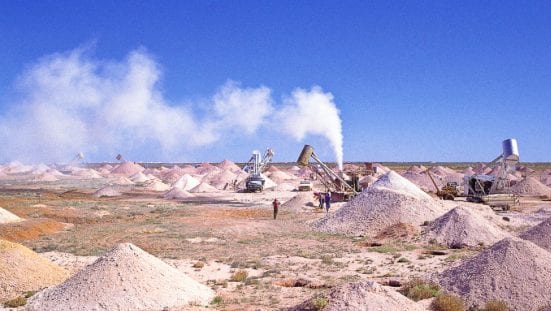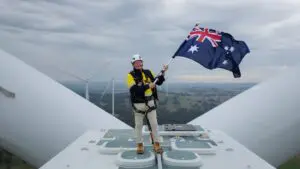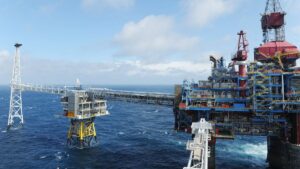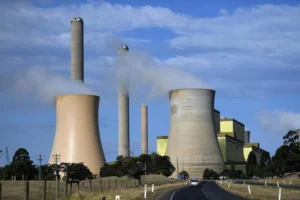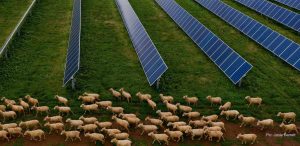Coober Pedy, the South Australia outback town dubbed the “opal capital of the world” it set to become the home of one of the most innovative off-grid renewable energy projects in the world after financing for a hybrid wind energy, solar and battery storage power plant was completed.
The Coober Pedy Renewable Diesel Hybrid project will feature 4MW of wind, 1MW of solar and a 1MW/250kWh battery to provide up to 70 per cent of the power needs of Coober Pedy. This will dramatically reduce the amount of diesel consumed from the existing 3.9MW diesel power station.
The project, to be built, owned and operated by Energy Developments, is being supported by an $18.4 million grant from the Australian Renewable Energy Agency. Without the grant, the project would not go ahead. The Coalition government has announced ARENA will no longer provide grant funding for such projects.
The mix of wind and solar has changed slightly since the project was first announced in June, 2014, when it was envisaged to have 3MW of wind capacity and 2MW of solar capacity. That’s because an in-depth wind resource assessment determined that a higher proportion of wind energy would be more cost effective.
The project is designed to replicate the success of the King Island renewable integration project in proving the ability of renewables and storage to cut off-grid diesel use in differing locations.
ARENA CEO Ivor Frischknecht said in a statement the Coober Pedy project was a prime example of Australia’s world-leading expertise in devising renewable micro-grid solutions with strong export potential.
“This is a next-generation off-grid project, taking advantage of advanced renewable and enabling technologies that have already been successfully trialled at off-grid locations such as King Island,” Frischknecht said.
“Combining wind, solar, battery storage and smart control systems could provide a blueprint for off-grid communities to access cleaner and cheaper power and achieve energy independence by greatly reducing their reliance on trucked-in diesel.”
The project is also underpinned by a 20 year power purchase agreement with the District Council of Coober Pedy, supported by the South Australian Government.
Construction is due to commence in September 2016 and completion is scheduled for the first quarter of 2018.

